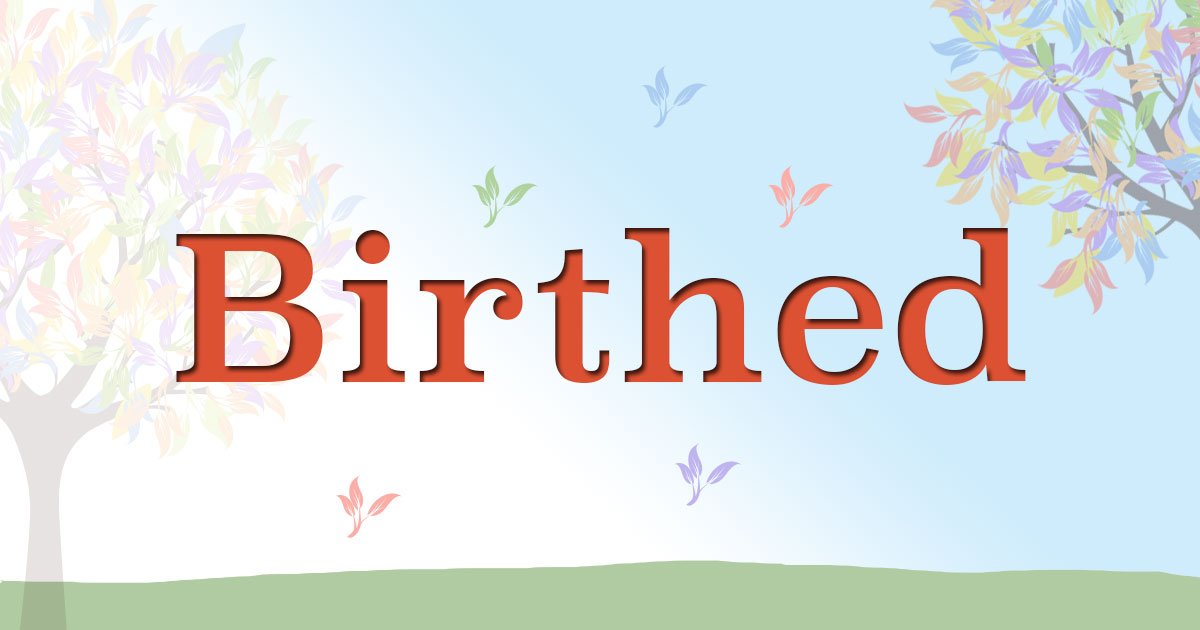
Do you believe you're living a life well lived now?
For most of us it's so easy to ignore, try to skip over or plow through the hard chapters of our lives and not learn the lessons they have for us. But today, Dolly-- a friend I met through my pastorate last summer at North Chevy Chase Christian in Maryland has a testimony to share as she looks back over the key stories of her life. And ultimately her word is that God's goodness has prevailed. You'll want to read her words-
My life has been good. God has been good to me. It’s hard, now, for me to see any of it as being difficult. Although, at times, it surely was.
My father died my senior year in college.
My mother called saying, “Dad has had a stroke, come home quickly.” He was unconscious when I got there and never regained consciousness. He died the next day. We didn’t get to say goodbye. That was hard. But life goes on. I went back to college, finished my final exams. I graduated. God was with me.
My first child was stillborn.
I was very sick with toxemia during the pregnancy and lost 20 pounds. I was so weak they didn’t bring the baby to me in the hospital. Maybe they thought it would be too much for me to deal with, holding my dead baby. So I never got to see him. I only have my memories of my relationship with him while he was in the womb. I talked to him all the time while he was inside me. I knew him. But I never got to see him or hold him. That was hard. But life goes on. I was young, my husband was supportive. I survived. God was with me.
Twenty-some-odd years went by, my marriage failed, I struggled with getting a divorce.
I prayed about it, knowing what the Bible says about divorce. Always I have tried to be obedient to God. I made my decision and trusted that God would forgive me. I survived. Life went on. And it was good. God was with me.
When Bread for the World relocated from New York City to Washington, DC in 1982 I applied for a job opening as assistant to the director. Lo and behold, I got it. We moved from Bloomington, Indiana, to Washington, DC. And I spent the next 27 ½ years using my talent for organization for a worthwhile organization that accomplished great things for hungry people. Being a Christian organization, the staff nurtured each other with weekly prayers on Friday and with ongoing loving support of one another. Now retired, Bread is still close to my heart and I keep the staff and the mission of the organization in my prayers. And it was good. God was with me.
But then my mother died, at a ripe old age, I felt like an orphan.
Both father and mother dead. No brothers or sisters. But life went on. I spent time talking to her as I drove to work each morning. And then one morning, I got to work and realized I hadn’t thought of her once. And that is the way life is. It goes on, and so do we. God was with me.
Despite the times of loss and change, God has always been good to me. The difficult times strengthened my relationship with Him. He has always been with me, guiding me, comforting me, forgiving me, loving me. The Bible text that I try to live my life by has long been these words from Micah 6:8: “And what does the Lord require of you but to do justice, to love kindness, and to walk humbly with your God?”
I am blessed.
Dolly was born in Indiana and now lives in Maryland with her husband. She has an B.S. in Music, Indiana University. She loves her family, friends & neighbors. Now as a retired woman she especially appreciates her animals, nature, music, books, and lots of peace and quiet. 

This Advent, I’m thrilled to offer you the voices of some articulate storytellers— writers with wisdom to share about how their experiences of pain or loss is birthing in them something beautiful. Not in a Pollyanna sort of way of course, but in the spirit of what Leonard Cohen once wrote: “There is a crack in everything. That’s how the light gets in.”
And isn’t Advent is all about light shinning in the darkness?
If you missed Meredith’s, Mary’s or Anne's story, check them out. Today, I’m glad to introduce to a friend, Susan, who knows a lot of about actual birthing for she's a midwife!
____________
I’ve had the privilege of witnessing love at it’s most primal, it’s most raw.
Midwives talk of a woman wandering off to “labor land,” where her neocortex is quiet and her animal body is in charge.
So often we relegate love to the realm of emotions and ideas: feelings, thoughts, a list of qualities we like or don’t like in a person.
But there is deep power in the non-verbal, embodied-ness of love: the way your lover smells, the comfort of his touch, your breathing synchronized in sleep.
It’s this embodied, animal love that we see in birth. Yes, there are thoughts of meeting baby, this new person swimming into the world. There are words of affection and mantras of courage, but mostly, it’s a body sort of love.
It’s an excruciating, exhilarating, wide-open labor of love.
The sounds and smells of labor are unique, earthy, grounded, and guttural. There is sweat, blood, vomit, humid warmth from the tub, and the scent of lavender wafts in the air. There is also timelessness: the sun rises and falls, we cover the clock, and the moments are marked by waves of intensity, surges of overwhelming body-love.
Transition, the final stretch of cervical dilatation before pushing, is one of the most powerful bits of labor.
It’s the moment when a woman, out loud or deep in her secret thoughts, will declare, once and for all, that she cannot, will not, do this any longer.
She will throw in the towel or die, because she has reached the brink of impossible and beyond, and it seems the magnitude of her own body’s power will crush her.
To this I whisper, “Yes, good, now you are close.”
While the laboring woman fears drowning in her own intensity, I see the final signpost preceding the finish line. This all-spent, everything-you’ve-got labor of love not only asks her for all she has, but also reveals her unbelievable capacity for courage, power, and strength.
She dives deep into reserves she never knew she had, and resurfaces as a mother, ready for the daily diving deep into self-sacrificial, redemptive, instinctual love.
I see that God, too, labors and births in and through this world, redeeming and re-creating it bit by bit, moment by moment, day by day.
This is not the kind of creating that snaps the finger, waves the wand, and “Voila!”
This is a slow and steady love, a one-foot-in-front-of-the-other, then back-to-the-starting-block sort of love.
The sun rising each morning, the flower opening each day, the child forgiving her sibling, the husband loving his wife, these are the moments of new life, birth and redemption in this world.
These are the wafts of lavender and the warmth of water soothing our groaning souls as we labor through the darkness and pain of this world.
God, the mother, moans through our failures, pushes toward our freedom, labors in love to birth us anew each day. If we open ourselves wide to this gift of aching love, we are invited in as co-creators with the creator of all.
We stretch, open, dive deep, and find our place in the excruciating and exhilarating labor of redemption.
Susan Smartt Cook lives in Edmond, Oklahoma with her husband Josh and her two beautiful pups, Ruth and Waylon. On any given day you will find Susan nurturing her small midwifery practice, her kitchen, and next year’s garden.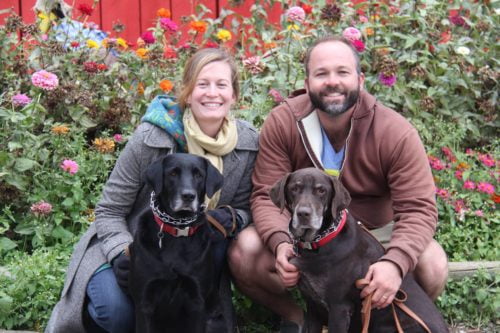
As a child growing up in an evangelical branch of the church, I was taught that prayer was talking to God.
It was right to give thanks to God for food. (God is great. God is good, anyone?)
I was encouraged to pray for those who were going through difficult times. (There's nothing longer than a church prayer list is there?)
I learned that if you didn't confess sin before you prayed then God wouldn't be too happy with you. (I can just hear one of my Sunday School teachers saying: "Confess, confess, confess!")
And, while I learned a lot all through these years of Christian education-- all of the "rules" of prayer seemed to be just that, rules.
I didn't understand why my relationship with God needed to look one way. Did it have anything to do with my particular personality? I wondered. 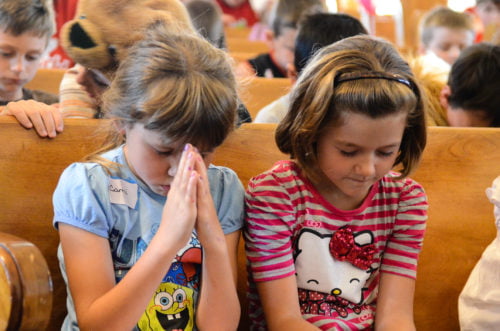
I took a break from prayer for many years in my 20s.
I know that's not something that preacher types usually share; for they fear it will ruin their holy complex. Well, if you have a holy complex about me, let it go now. I'm just a human being like everyone else.
Sure, I could stand up in church on Sunday mornings and ask God to bless the sick in my congregation, those with troubles in the world and find a way to end with the Lord's Prayer-- but things weren't so intimate with God and me.
I didn't see the point, especially as I walked through difficult situations and nothing about my situation seemed to change . . . (insert forthcoming memoir on infertility here).
But over the last year or two, this has shifted. And I now pray for completely different reasons. My baby steps back toward prayer centered on praying for those I love.
I don't know if you are like me or not, but when I love, I fiercely love.
I love my congregation members if I'm serving a particular church.
I love my husband.
I love my dear kindred friends.
I love those that find a way to intersect my life in unique ways.
And for me, sometimes, it is hard to know what to do with that love. I truly want the best for them. I want to see them thrive. I want life to be as good to them as it possibly can. However, there comes a time when relationally I have done or can do all I can, but yet my heart isn't at peace for them. So I pray. I find joy in giving those I love to God.
And, so I've learned to pray-- love by praying. To ask God, who I believe is the divine parent of us all-- to watch over those I know are in need of peace, support or wisdom.
A funny thing has happened to me along the way. I have found myself wanting to pray more. It's no longer a chore. It's a sweetness in my day. It has become a relationship between God and my community.
While many might think, it's shallow-- to just pray for people who you love-- I say, don't judge too quickly. In getting the conversation going again, God has come near to me in other ways. I'm beginning to get back to all the other stuff too like "Oh, God I have fallen short of your best for me in this way" or "Oh, God bless those in need in far away places" or "God bless so and so who really annoys me."
So, why do I pray now?
I pray out of relationship. Sometimes there's lots of talking. Other times there's not.
But, like any relationship I know a spiritual life has ebbs and flows. But prayer is the conversation starter.
This is what I know for sure: I am a creation of the great Creator who loves me. I want to grow to love God more. So I learn to pray.
Why do you pray?
It's amazing to me the people I meet in my travels who all seem to complain about the same thing.
The obligations in their lives that totally bring them down.
"Oh, we're going to see my uncle on Easter again this year. We always have such a miserable time but . . ."
"Oh, the moms at my kid's soccer practice drive me crazy and the coach is just so rude to my boy, but . . . "
"Oh, I signed up for another 3 year term on that community board that saps the time I'd rather spend with my friends, but . . ."
What is it with our love of self-abuse? And our inability to say no? And our falling prey to guilt trips?
I do it. You do it. We all do it.
We say yes to things that make other people happy though we growl later.
We over commit to projects because "nobody else did" and couldn't be farther away from our true interests.
We get caught in the vicious cycle of doing the same things year after year (forgetting why we started doing that thing in the first place!)
We let people and experiences make us miserable.
But there's an alternative, you know. I bet you've tried it before. And, I bet you loved yourself when you did. It's what I call moving toward love or in the words of one of my favorite Howard Thurman quotes-
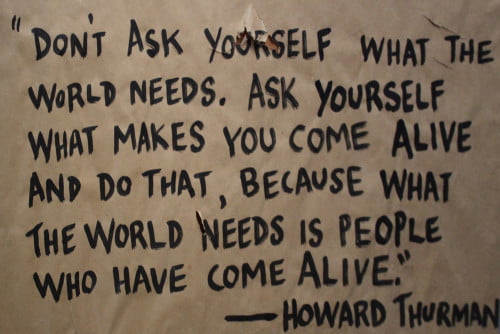
When we begin to let the priorities of our calendar reflect what we love and what makes us come alive, I believe our whole life begins to change.
Really.
Instead of filling our days with stuff that just checks stuff off the list or keeps the world spinning around (or so we think), we have the choice every day to move toward love-- doing what we enjoy the most and the people we enjoy the most doing it with!
Really.
 By this I don't mean we all go out and quit our day jobs tomorrow (the bills do have to be paid), but we begin by making small choices every week in the direction of what we love. Maybe for you it's a . . .
By this I don't mean we all go out and quit our day jobs tomorrow (the bills do have to be paid), but we begin by making small choices every week in the direction of what we love. Maybe for you it's a . . .
- A yoga class with your girlfriends
- An afternoon of golf
- A plan to start something new
- A special trip with the grandkids
- A pause to watch the sunrise
Knowing that as we make these choices, we grow closer every day toward who we are and what our lives are most to be about.
For moving toward love IS whatever brings us both joy and deeper connection to ourselves and/ or others.
Anne Lamott says it best: "I think joy and sweetness and affection are a spiritual path. We're here to know God, to love and serve God, and to be blown away by the beauty and miracle of nature. You just have to get rid of so much baggage to be light enough to dance, to sing, to play."
It take courage of course to live like this-- to come alive.
NO can be an earth shattering word to people around us, especially as we begin to say potentially for the first time.
It's hard to tell our children no.
It's hard to tell our parents no.
It's hard to tell our best friends no.
But in the end, what's at stake is more than hurting someone's feelings. It's OUR LIFE.
It's our life that we will one day be accountable before our Maker. So why would you and I want to waste our precious days on relationships, on projects, or on experiences that make us feel less than? Or drained? Or discouraged? Really why?
So if you're needing someone to give you permission this week to say yes to something you LOVE and no to something you hate, let me be your pastor today.
Move toward love, my friends. Move.
It's a great spiritual path.
Excerpts of a sermon preached a Springfield Christian Church, Springfield, VA on Micah 5:2-5, Luke 1: 46-55
There’s a reason that songs like “New York, New York” and “Hollywood” are so popular. We love singing about the cities where “If you can make it there, you can make it anywhere” because there’s a popular assumption in America that if anything really good happens, it will come out of a big city.
Because of these facts, it’s so easy to believe that important things happen in important towns. Period. If you don’t live in an important town, oh well. . . not much is going to go on.
But is this always the case?
When I say, Seneca Falls, NY, you know it. Why? The women’s movement.
Seneca Falls, a once sleepy town of a few families rose to prominence when Elizabeth Candy Stanton decided to organize a gathering that became THE start of a woman's right to vote.
When I say Selma, you know it. Why? The Civil Rights Movement.
We know of Selma, a sleepy town of a few thousand residents in the middle of Alabama, because of that fateful day on March 7, 1965 Martin Luther King, Jr. and thousands of supporters dared to say segregation would no longer be tolerated.
When I say Plains, GA, you know it. Why? Because of Jimmy Carter.
Plains, a central GA town of still only 688 residents today was the birthplace and still is the homestead of Jimmy Carter, the 39th President of the United States. Who would have thought that a peanut farmer would one day be at the center of American history both in and out of office?
You see, there are good things—often even the best things can come out of small towns, of unexpected towns, of lowly places, wouldn’t you say?
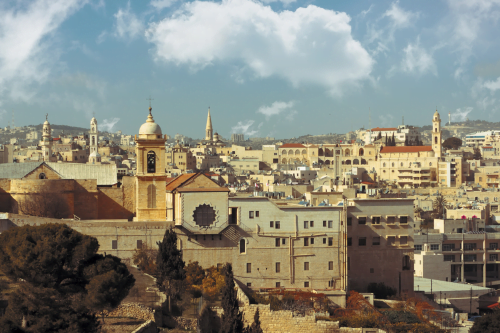 And such seems to be the message of Micah chapter 5. The prophet Micah opens the chapter he says this hopeful word about the nation of Judah’s restoration: “But you, O Bethlehem . . . who are the one of the little clans of Judah, from you shall come forth from me one who is to rule Israel.”
And such seems to be the message of Micah chapter 5. The prophet Micah opens the chapter he says this hopeful word about the nation of Judah’s restoration: “But you, O Bethlehem . . . who are the one of the little clans of Judah, from you shall come forth from me one who is to rule Israel.”
Micah is writing around 760 BC a time the nation of Judah is living under siege from the the Assyrians. They’d invaded the region and their military prowess was bar none—so weren’t going away anytime soon. You can imagine that folks feared for their safety and their security in the future.
And this was the word of the LORD: a new ruler is going to come out of Bethlehem.
I can image the disbelief of those who heard this prophetic message. “You’ve got to be kidding me! Why not Jerusalem or at least some other town . . . Not tiny Bethlehem! Times are hard. We’ve got to do better than that!”
Even though Bethlehem was the the hometown of David, and historically they’d already been through this before--- when Samuel was told by the LORD to go there to anoint the next king of Israel from among the sons of Jesse—the fact in Micah’s time was UNBELIEVABLE as well.
So hope from “one of the little clans of Judah?” Not exactly a New York or LA kind of dream . . .
For the work of the gospel is this: God is in the business of lifting up the lowly.
In Luke's gospel two cousins, Mary and Elizabeth meet up. Filled with wonder of their unexpected and unlikely pregnancies, 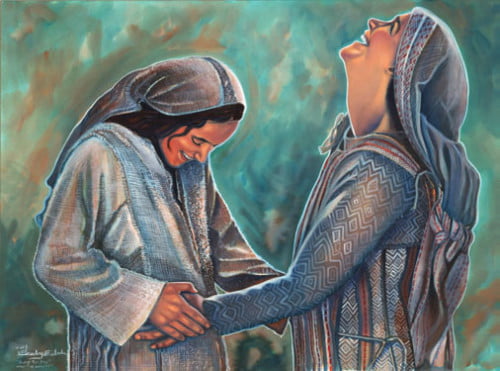 they both knew one thing: God was with them. And in Mary’s case quite literally.
they both knew one thing: God was with them. And in Mary’s case quite literally.
For as soon as Elizabeth saw her with child cousin, we are told the Christ child leap in her womb. And in response, not only did Elizabeth exclaim about Mary, “Blessed is the fruit of your womb” but Mary is so overcome with thanksgiving she begins to sing. Saying, “My soul magnifies the Lord.”
And the song, known in our Christian tradition as the Magnificat, is the original radical Advent carol.
Hear these words of Mary: “My spirit rejoices in God my Savior, for he has looked with favor on the lowliness of his servant. . . . [God] has shown strength with [God’s] arm; he has scattered the proud in the thoughts of their hearts. He has brought down the powerful from their thrones and lifted up the lowly.”
For as Mary sees it, God had no respect for the persons of so-called power in her world.
I’m not sure Mary would be impressed with our modern-day celebrity figures, presidential candidates or even Barbara Walter’s list of “The 10 Most Fascinating People of 2015” Nope. She speaks of how God has “filled the hungry with good things.”
Famed Episcopal preacher, Barbara Brown Taylor says this about Mary in her book, Home by Another Way: Mary sings, “for every son and daughter who thought God has forgotten the promise to be with them forever, to love them forever, to give them fresh and endless life.”
Mary’s song is the theme of the hopeless!
And it’s like the songs lifted up throughout the pages of scripture by other “lowly ones” come before her.
Such as ones by Miriam, Moses’ sister who sings of the “horse and the rider being thrown into the sea” as the LORD delivers the children of Israel from Egypt.
Ones like from Hannah, barren and without any status from her family or cultural system, sings when she learns she’s pregnant of how “the bows of the mighty are broken but the feeble grid on strength.”
Ones from the unknown Psalmist of number 146 which speak this: “The LORD watches over the strangers, upholds the orphan and the widow.” (7-9).
These songs are resistant songs, much like Mary’s carol. Songs which beat with the sound of God’s heart for those who we’d never expect to get to know! The world may forget, but God does not!
Are you seeing the picture?
God lifts up the lowly. God exalts the lowly place. God comes in sleepy and forgotten towns. Places in our world where nobody would think God would be.
 This weekend, my husband and I were a part of a mission in Honduras. As we celebrated Christmas with a group of boys at orphanage each boy received a Christmas present. It’s not an unusual tradition for it now happens every year, but for a couple of the two youngest boys new to the center, it was completely new.
This weekend, my husband and I were a part of a mission in Honduras. As we celebrated Christmas with a group of boys at orphanage each boy received a Christmas present. It’s not an unusual tradition for it now happens every year, but for a couple of the two youngest boys new to the center, it was completely new.
One of them, I'll call him Luis, recently came to the center because his other brothers all died in gang shoot out. His mother was afraid for his life and took him to the country’s social services to ask for him to be placed in a home where he wouldn’t be killed by the men in the gangs too. She could not bear to lose one more son. His adjustment to life without his mom and his brothers hasn’t been easy but slowly Luis is finding his place in his new safe home.
During the Christmas celebration Luis’s name was called to come forward and receive his present. And in his package he found a remote control toy car. After returning to his seat, we later learned that Luis bowed his head, closed his eyes and prayed:
“Thank you God for my first Christmas present.”
The look of joy, his teacher said, on his face beamed with pride! A dream come true for this 9 year old happened!
This to me, was a picture of what lifting up the lowly is all about. A child in a Honduran orphanage who thanked God for his first Christmas present!
For when I see God come in my life, I most assuredly see God in the faces of kids like Luis.
This is what I most want to offer you today when God comes—God not only keeps God’s promises and sends messengers and gathers us together but God lifts up the lowly.
The only question is will we see our Lord this Christmas? Will we make room for this great surprise?
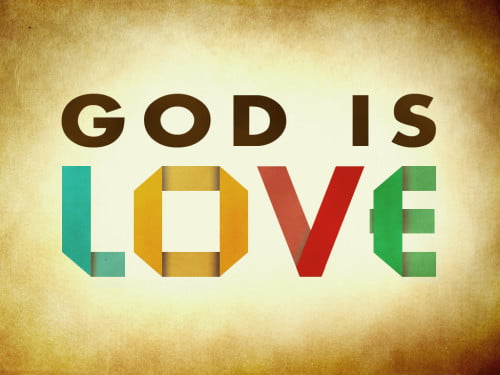 Throughout my life, on my best days and worst days alike, there has been one abiding truth that I've always known and clung to: God is love.
Throughout my life, on my best days and worst days alike, there has been one abiding truth that I've always known and clung to: God is love.
Nothing that can separate us from this love. No height, nor depth, no nothing! And the love of God is not just for a select few. It is for all people.
Then, if we've experienced this love, it is our job to share it with others without discrimination. We are called to love as God loves.
No matter where a person is born, no matter the color of their skin, no matter the language they speak, no matter if we call them an enemy or a friend, we are to love.
Though none of us lives into this calling with perfection, it's what I believe the pastoral life is all about. We are asked to model love in healthy ways as God has loved us.
But this living "God is love" is not always easy. Here's one example:
Recently, I entered conversation with a church to be their interim pastor. As I got to know the search committee selected to represent the congregation, I observed their love for God, each other, and their church. I was very interested in how my calling could be lived out in this place. I gladly accepted their offer to serve among them when it came.
However, it became clear from the first moments of my work, that the interim time in this church broke open issues deep below the surface that no one saw coming. A storm erupted among some members of the church.
But, thanks to the loving community around me, I didn't panic. I preached my first sermon about love in fact. I knew that my showing up could speak volumes about giving God's love a chance. I awaited how the story would unfold with hope.
But then, this week, it became clear that:
1. I was/ would not be given as chance to minister because I am a woman.
2. I was/ would not be given a chance to minister because it is my personal belief that all are welcome in God family, even those who are gay.
It is my abiding belief that love can not be forced upon a person or a group of people. It's either accepted or its not. And, church shouldn't be a place where newcomers feel either emotionally or physically unsafe. Love shouldn't hurt. So, sadly, I knew I needed to leave this context much sooner than I hoped.
So my friends who long for the coming of God's kingdom on earth, this is what this experience has reminded me of all over again: we've got a lot of work to do. A lot.
Christians should be known by our love, not our exclusion. No one should be unwelcome in church. No one.
Jesus loves little children, all the children of the world. Red and yellow black and white they are precious in his sight. Jesus love all the children of the world!
All are welcome in the family of God. It's such great news that we've got to share.
And we must share it. People need to hear it. People are longing to hear it. People's lives could be changed if they knew. And I want to be part of ministry is a beacon of love for all people. All people.
Here's the message, I'll keep preaching the rest of my days. Let us love God and love one another.
As the old hymn goes, they'll know we are Christians by our love.
We must keep a open chair for the stranger or for any who find their way to our congregations. Always.
So, I'm wondering, would someone visiting your church know that God is love? And if they wouldn't, what are you and I going to do to be the change?
A sermon preached at the Antioch Christian Church, Vienna, VA from Ephesians 3:14-21
 Surrender—it’s a word that’s defined by Merriam-Webster’s dictionary as verb that means to give control or use of (something) to someone else.
Surrender—it’s a word that’s defined by Merriam-Webster’s dictionary as verb that means to give control or use of (something) to someone else.
And I have to tell you that it’s not one of my favorite words.
Oh, I love verbs that are the opposite of surrender. I like verbs that ask a lot less change of me. Verbs like defend, hold, keep and continue.
Because isn’t it pleasant and peaceful when things stay the same?
Isn’t it pleasant when we can take our cues from the warm and fuzzy feelings of routine? It is!
But is this the way of Jesus? Does following Jesus mean that everything stays the same?
When I was 17, I signed up for my first long-term mission trip through my church’s denomination. Once accepted into the program for high school students, I received my assignment in the mail: I’d serve in children’s ministry in Charleston, SC for six weeks.
While my first thought was: “Wow, a summer serving God and working with children in a town close to the beach—what could be better than this?”
The reality I met on the first day was much harsher.
Charleston was 7 hours away from my hometown of Chattanooga, TN. I would not be close driving distance to family and friends if I got homesick. So goodbye familiar.
Our team was big—over 50 students serving with Charleston Outreach —so we’d be crammed into 2 bedroom apartments with only one bathroom. So goodbye privacy.
The hours—we’d be working from 6:30 am in the morning till sometimes 8 pm at night sometimes without breaks in between. So goodbye sleep.
And, there was little time for the beach either.
The first weeks of the summer, I cried every day in the closet to either my mother or grandmother begging them to send care packages (sad, but true!). But I quickly learned that a re-adjustment in attitude was needed if I was going to experience God's gifts for me from the summer.
And it all started with the word surrender.
I would have to surrender to the fact that the cereal that my housemates bought was not the kind my mother bought at home and I liked.
I would have to surrender how often I could wear clean clothes— because we only got to the laundry mat every 10 days or so.
I would have to surrender to my teammate’s preferences and ideas about how we would lead our Vacation Bible Schools each morning. Sometimes, we wouldn’t sing the songs or do the crafts I wanted to do.
Telling you all about this now sounds a little bit petty now but at the time, it was a big deal. Little things are a big deal, aren’t they?
But, my team was together in common purpose after all: to share the love of Jesus to all those we met. We all believed Jesus brought us together. And like Jesus we regularly reminded ourselves: “Not my will by thy be done.”
If you’ve ever had an experience of discomfort with something you feel God has called you to do like I did that summer (and in many other situations since), then you’ll understand exactly the spirit of the epistle lesson before us this morning. The writer of the book of Ephesians offers a glimpse into his prayer life for the church in Ephesus.
And it also begins with the concept of surrender.
Beginning in Ephesians 3 verse 14 what we hear is a break from the theological teaching found earlier in the book. And instead we hear a corporate prayer offered on behalf of the congregation.
It’s a prayer much like the pastoral prayer we heard offered this congregation every Sunday.
It’s a prayer of that speaks to the identity of why the congregation exists.
 It begins with this visual: “I bow my knees before the Father.”
It begins with this visual: “I bow my knees before the Father.”
And what an extraordinary beginning this was to the prayer.
Though it sounds normal to us—when we think prayer, we think kneeling-- such wasn’t to the congregation who first heard it.
For the first century readers the custom of prayer as a physical bowed act was not normal. For example, if we go back to Jesus’ encounters with the religious folks in the gospels, we will notice that men and women in Jesus’ time all prayed standing up.
So begin with these words, “I bow my knees before the Father” was a huge teachable moment.
Though God is not concerned with the outward appearance, the Ephesian writer was saying how we carry ourselves outwardly has a lot to do with what we expect on the inside.
So he says boldly, “I bow my knees before the Father.”
Or in other words: start here—God is God and you are not.
And the prayer begins with beautiful words about the real heart of the journey of faith.
Or, more specifically what you and I are asked to do on this journey.
It’s hard to get through the rest of this prayer—as it reads like one long run-on sentence depending on the translation you are using, but let me boil it down for you.
Surrender your life to Jesus. It's simple but oh so profound!
And the writer gives us this description of what the surrender will look like when it occurs.
First, Christ will strengthen and dwell in hearts. And second, the Christ will root and ground the congregation in love.
For to know Christ is to know love, to be love and to share love.
Love, love, love. As simple as it is, it all goes back to love in this text.
But I tell you, it’s not the kind of love that we somehow will up or make ourselves have. No, it’s the literal living and abiding presence of Jesus in us that this text says the Christian life is all about.
For none of us can have our hearts rooted and ground in love if it does not come from Jesus first.
God asks us to surrender our will, our desires for our life, and our best laid plans to the work that Jesus longs to do in us. It's not just churchy talk, it's the truth!
I’m sure you’ll notice throughout the text the frequency of the word “you” and “your.” We know from grammar class, that these are singular words. But when we go back to the original Greek, what we realize is that “you” comes from the plural. It’s more like in English “we.”
Or for any southerners you could just insert “y’all” or for notherners “you guys.” And you’ll be at the right spot.
“I pray that according to the riches of his glory, he may grant that [we] may be strengthened.”
Or in other words—this is exhortation in prayer for the entire gathered community. No one is off the hook.
One of my favorite heroes of the Christian faith that I’ve loved since childhood is Corrie Ten Boom.
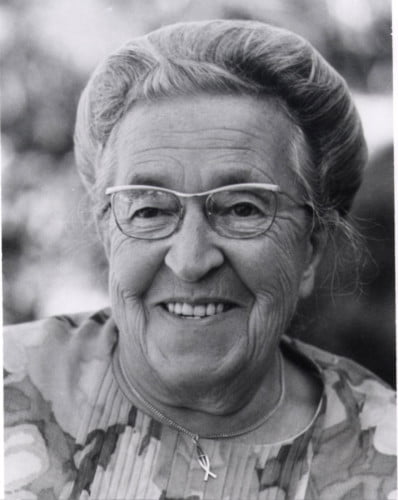 If you are unfamiliar with Corrie’s story—she’s a woman from Holland who reached young adulthood during the Second World War. Corrie, along with her father and sister Bestie hid Jews in their home to keep them from arrest and death at the hands of the Nazis. They did so out of a strong sense of a faith calling.
If you are unfamiliar with Corrie’s story—she’s a woman from Holland who reached young adulthood during the Second World War. Corrie, along with her father and sister Bestie hid Jews in their home to keep them from arrest and death at the hands of the Nazis. They did so out of a strong sense of a faith calling.
Corrie knew that to be a follower of Jesus meant always to stand up for those mistreated or in danger. Always.
All went well until the day when it was discovered what Corrie and her family were doing. The German solders stormed Corrie, Bestie and their father’s house arrested them, and sent them to a concentration camp. Though Mr. ten Boom did not survive in the camps. Corrie and Bestie braved the test well until an illness took Bestie’s life only days before Corrie was released.
There was no dearer person in Corrie’s life than her sister Bestie and you can imagine how devastating the loss was to her. But as Corrie emerged from prison she knew that God gave her a story to tell and share with any who would listen.
In 1947, in Munich, Germany Corrie found herself in a church sharing a testimony that God forgives and that she’d forgiven those that had brought harm on her and her sister’s life.
It was here that she met face to face with Jesus’ calling of surrender—to a person rooted and grounded in love.
She was standing at the door shaking hands with people as they left the church when she saw him. She saw the man who was one of the guards who supervised and tortured her and Bestie at the camps.
And before she even had time to escape her horrid memories, the former guard spoke to her: “Now he was in front of me, hand thrust out: ‘A fine message, Fräulein [you gave tonight]! How good it is to know that, as you say, all our sins are at the bottom of the sea!’
Corrie knew she’d just preached on forgiveness and that this man was a beloved child of God as much as she was, deserving of love. What on earth would she say next?
But before she could muster a word, the guard went on, “I have become a Christian. I know that God has forgiven me for the cruel things I did there, but I would like to hear it from your lips as well. Fräulein,’ [putting his hand out]—’will you forgive me?’
Corrie knew that if she truly believed that her life belonged to Jesus, there would be only one reply she could give—
Corrie said this is what happened to her next: “And so woodenly, mechanically, I thrust my hand into the one stretched out to me. And as I did, an incredible thing took place. The current started in my shoulder, raced down my arm, sprang into our joined hands. And then this healing warmth seemed to flood my whole being, bringing tears to my eyes.
“ ‘I forgive you, brother!’ I cried. ‘With all my heart!’
“For a long moment we grasped each other’s hands, the former guard and the former prisoner. I had never known God’s love so intensely, as I did then”
This, my friends is what surrendering to Jesus’ presence in our lives is all about. Loving the unlovable. Forgiving the unforgiveable. Abiding in grace with those who persecute us.
And what’s the result when we do surrender?
We only need to keep reading in our text a little bit longer to know.
“Now to him who by the power at work within us is able to accomplish abundantly far more than we can ask or imagine, to him to him be the glory in the church and in Christ Jesus to all generations, forever and ever. Amen.”
Do you hear this?
For when you and I surrender to God—as this prayer hopes we will—then we are going to live into a life that is beyond what we can imagine.
I’ll tell you that I never imagined when I was 17 on my first mission trip that one day God would call me to pastor and opportunities to travel the world and preach the gospel—but Jesus did.
I’ll tell you that I bet Corrie ten Boom never imagined that God’s love would call her to hid persecuted persons in her home, go to prison for her decisions and then share a powerful word of forgiveness with the world through books and speaking—but Jesus did.
 And, I’ll tell you that when God led your founders to birth a congregation called Antioch Christian Church many years ago that they would have never imagined the ministry of love that God would be calling it to in just a time as this in 2015—but Jesus did.
And, I’ll tell you that when God led your founders to birth a congregation called Antioch Christian Church many years ago that they would have never imagined the ministry of love that God would be calling it to in just a time as this in 2015—but Jesus did.
When we surrender our lives, to Jesus, my friends and Christ truly abides in our hearts, we’re always on the move.
Our lives are always going to be led to places where Christ can strength us and challenge us to BE the GOOD NEWS to those who need to hear it.
So may we start this morning with one word: surrender.
AMEN
 It was a big day yesterday. A BIG day. A day so many of us will remember where we were when we heard the news.
It was a big day yesterday. A BIG day. A day so many of us will remember where we were when we heard the news.
Marriage is just marriage.
It's now the law of the land.
In light of this, I thought it might be a great opportunity to revisit a post I wrote back in October for those of you who are wondering how an ordained minister can be an ally of marriage equality.
I’m excited about all of this progress. I want to tell you why.
Not to give you a Biblical exegesis of the issue. Or to debate with you if you think being gay is a sin. (If you want resources on this topic check out Matthew Vines' book or this video documentary that makes me cry every time I watch it). But to tell you part of my own story.
_______
Growing up in the Southern Baptist Church in Tennessee– the leadership of the church was ALL about the men.
Men preach.
Men pray.
Men are told to be the spiritual leaders of the home.
Never do you see a woman taking up the offering or being asked to lead the closing prayer or even teaching under the block of the service called “the sermon.”
But what happens when you grow up and feel called to do exactly the opposite?
What if people tell you as a teenager, “Well, if you were a young man, I’d tell you to be a preacher.”
What if you ARE a leader, a proclaimer, and someone who wants to discern life in conversation with your partner?
What then? I guess there are many different paths but for many it looks like this:
You must leave your “home church” and the approval of the sweet little old women who gave you peppermints from their purse every Sunday.
You must leave your “favorite” status at family gatherings when everybody talks about what they do.
Yet, you learn to sing as clearly as you ever had in your life: “I have decided to follow Jesus. No one goes with me I still will follow. No turning back. No turning back.”
While it sounds fun and revolutionary maybe– from the outside looking it– to actually do it can be one of the hardest things you ever do in your young adult life. It's lonely.
It was for me.
It takes more courage than you ever thought you had. And most of all, it takes sticking closer to the message of Jesus “to love the Lord with all your heart, with all your soul, with all your mind and love your neighbor as yourself” more than you thought was possible.
But you do it, no matter what. You do it because you know you have to. You chose to save your own soul because in the end, it’s all you can really save anyway!
Brene Brown writes this about such a process in her book The Gifts of Imperfection: “Choosing authenticity is not an easy choice. Staying real is one of the most courageous battles that we’ll ever fight.”
So, though I have never voiced, “I am gay” I have had to say: “I am no less than because I am a woman.”
In this small way, I know what rejection feels like. I know what Bible verses shoved in your face feels like. I know how costly choosing the real you can be.
It's awful. And this is NOT the gospel fo Jesus Christ.
But, you know what made it better? Community. New friends and colleagues saying more “You can” vs. “You can’t.” New denominational homes like this one and this one too. And a seminary that warmly embraces you and your call to preach too.
And in return, for the grace given to me, I want to include. Isn't this the gospel anyway?
I want to be a minister who loves richly in community.
I want to advocate for voices that get shoved to the margins, no matter where those people might be.
I want to be a part of churches that are known for their love and not their hate.
I want to marry those who ask me to marry them, however they identify their gender or sexuality.
We’re all God’s children after all.
Lessons from the First Family: You are Beloved
A sermon preached on Genesis 1:26-27 at the Federated Church, Weatherford, OK
I’ve had one of those weeks when my message to you could be summed up in one sentence.
Let me explain there’s a story . . .
 In my tradition, ordination is a function of the local church. During a special service the pastor-to-be is called out, charged with words of exhortation and endorsed by a congregation. On the day of the event, the candidate comes forward (usually at the end of the worship service), kneels and the entire congregation is invited forward, one by one to place their hands on the candidate’s head. Each congregation member speaks a word of blessing toward the candidate.
In my tradition, ordination is a function of the local church. During a special service the pastor-to-be is called out, charged with words of exhortation and endorsed by a congregation. On the day of the event, the candidate comes forward (usually at the end of the worship service), kneels and the entire congregation is invited forward, one by one to place their hands on the candidate’s head. Each congregation member speaks a word of blessing toward the candidate.
On the occasion of my dearest seminary friend, Abby’s service, I was so excited. I had watched her embrace her call to ministry. I loved the woman she was becoming. I couldn’t have been prouder to be her friend. Since I am a person who loves words and not just any words, but the right words, I wanted my blessing on her ordination to be perfect. For the entire week leading up to her service, I practiced what my words might be.
But, then the emotions of the ordination service got to me. I started crying tears of joy and crying more tears of joy.
So when the time came for me to lay hands on Abby, I could not get my thoughts together at all. All those long speeches I’d created in my head about the beauty of her gifts for ministry and how God was going to be with her wherever she went did not come to my lips.
As I approached her all I could come up with to say was, “God loves you and so do I.” And then sat down.
Abby and I still laugh about this shared moment even today about my snot and tear filled blessing.
But in even in its simplicity, it’s one of the greatest gifts I could ever relay to you: God loves you.
Yes, God really loves you. Not just some of you, my Federated Church friends, but all of you.
It’s a simple statement, but it’s one that I fear few of us, myself include actually internalize.
Because when so many of us think about God, it’s often not God’s overarching, unending, unconditional love that bubbles up in our minds and hearts. Rather, it’s words like judgment, sin or even righteousness.
Though we know that scripture tells us that God has loved us with an everlasting love from generations to generations . . .
Though we know that God has called us God's children . . .
Though we know that God is slow to anger an abounding in love . . .
It’s another thing for such a deep truth to seep into our being.
For our culture and the stories from which our lives come are full of messages much to the contrary.
Our culture says love is conditional. If we do ____ then we are loved.
Our culture says love is moody. The love of others can come and go as fast a Oklahoma wind sweeps across the plains and the temperature can change from 25 to 75 degrees.
Our culture models love is self-centered. People love us based on what they can get out of their affection for us instead for the sheer delight of loving.
But, yet from the very beginning of the creation story as told in Genesis, God shows us what love us way that dispels all of these misrepresentations of love.
Our reading for this morning tells us this about how humanity came to be. God says: “Let us make humankind in our image, according to our likeness . . . So God created humankind in his image, in the image of God he created them; male and female he created them.“
Of all of creation, God wanted there to be a creation that was beloved, that was special, that would be called out to be in relationship with the Creator.
And this is the bottom line: We are told that God creates us in God’s image.
As we begin our Lenten series this morning—focusing our attention on the first family— and their experience of being human, what a great place to start to land on this passage.
Though the word “love” is not used in these verses, I could not help but title our first descriptive sermon today, “You are beloved” because love is a theme spoken yet unspoken in these verses.
Remember the last time you were around a child around the age of 4 or 5—in my opinion some of the most delightful years of childhood where the imagination is full active and the possibilities of articulately bonding in relationship with others is possible.
Several years ago when a nephew of mine was in this stage of life, the time I spent with him couldn’t be more delightful.
He’d follow me around the house when we came to visit. He’d bring books to me to read and snuggle up with him in bed. He’d want to hold my hand as much as he could. He’d sit in my lap bounding up and down with happiness when I’d promise to watch a show with him.
But, then he’d do performances modeling my tone of voice and mannerisms and wearing my jacket or scarf. He’d say, “I’m playing a game pretending to be Aunt Elizabeth.”
Because isn’t the popular expression true: “Imitation is the best form of flattery?”
And such is also true in how God feels about us. For you don’t create something, my friends in your image if you don’t like them!
And God more than likes us. God loves us. Not just part of us, but all of us.
To be told that we are created in God’s image, in God’s likeness is more than being told that we part of us is acceptable or part of us come from this holiness.
No, God says, our whole being is created in this love.
So, this means it’s not just our spirit that comes from the Divine.
And not just our heart—or what we deem to be the best part of who we are.
Or not even a body part or two—you know our especially good side we want to show in photographs.
No, scripture tells us that we were created in the image of God. All of us are a part of this.
If you or I were to go and stand in front of a mirror right now, one of those full-length mirrors what would we see reflected back to us?
Would we see our hands only? Or just our feet? Or just our pretty faces?
No, we’d see ALL of us. Our likeness in the mirror would be our entire selves.
And it is exactly in this manner that we are told our being came into existence.
For the story of our humanity—how you and I came to be—began in the fullness of love. And we come to know that this is true as we study the pronoun used in this passage. Verse 26 begins with these words, “Let us”
It seems confusing at first, doesn’t it? Plural pronouns are not used are they when only one person is present? So what is this “us” business all about?
Biblical scholars throughout the centuries have helped us know that this word actually refers to the Trinity. God the Father, God the Son and God the Holy Spirit-- the existence of God who was with us from the beginning of time until now—the God who came to us and abides in us in community.
In C.S. Lewis’ monumental text, Mere Christianity he writes this about what our creation story has to do with our beloved status saying, “All sorts of people are fond of repeating the Christian statement that ‘God is love’. But they seem not to notice that the words ‘God is love’ have no real meaning unless God contains at least two Persons. Love is something that one person has for another person. If God was a single person, then before the world was made, He was not love.”
Or in other words, we KNOW how much God loves us when we realize that we were created in the context of an “us.”
God loved before God first loved us. And out of that great love we came to be. In creation we were given God’s likeness.
Not merely to be stamped with an “mark” as if we were branded in some way, marked as property out of the context of relationship, BUT created in the very image of God.
One of my favorite spiritual teachers who died recently is Maya Angelou, an American writer, poet, actress and famed speaker. A couple of years ago I watched an interview with Maya where she was asked to describe one of the most significant moments in her life.
The interviewer was on the edge of her seat waiting for that moment when Maya would say something profound, I could tell. What the interviewer expected was something about a famous author or a poet she loved or even an encounter with a person she’s met during her travels all around the world.
But instead Maya tells this story of taking an online class at her church. “There’s a book called Lessons in Truth” she said. “And in the book there’s a line, which is ‘God loves me.’ And when I came to read it to my then-mentor, Frederick Wilkerson, I read, ‘God loves me.’ And he said, ‘read it again.’”
She continued, “I said, ‘God loves me.’ He said, ‘read it again, read it again.’ And finally, I said, ‘God. Loves. Me.’”
 To the interviewer, Angelou then became emotional and leaned over for a moment to make sure she got the point. “I want you to really hear this,” Maya said.
To the interviewer, Angelou then became emotional and leaned over for a moment to make sure she got the point. “I want you to really hear this,” Maya said.
“It still humbles me, that this force, which made leaves and fleas and stars and rivers and you, loves me -- me, Maya Angelou. It’s amazing!”
Maya went on: “That’s why I am who I am,” she said. “Yes. Because God loves me and I’m amazed at it and grateful for it.”
So today, my friends at Federated Church, I want you to hear this message loud and clear: God loves you.
From the first moment that our species came into being—from that first moment that our Triune God said, “Let us make humankind in our own image” we came into existence in love.
And though soon in our human story there will be mistakes made by us that separate us from God’s perfect love—the gospel truth is no matter what God never stops loving us.
Romans 8 tells us this about God’s love, “Who shall separate us from the love of Christ? Shall trouble or hardship or persecution or famine or nakedness or danger or sword? No, in all these things we are more than conquerors through him who loved us. For I am convinced that neither death nor life, neither angels nor demons, neither the present nor the future, nor any powers, neither height nor depth, nor anything else in all creation, will be able to separate us from the love of God that is in Christ Jesus our Lord.”
Nothing. No nothing my friends throughout the history of humanity can ever take this truth about who you and I are away: we are beloved by God.
Such a gift is such a hard one to receive from God sometimes, isn’t it? We all so easily take on falsehoods about our identity that ignore our beloved status.
But today, church, I want to tell you this simple but profound truth: God loves you. God really loves you.
AMEN
 These weeks in Tanzania and Kenya, my eyes and ears have been overwhelmed by many things:
These weeks in Tanzania and Kenya, my eyes and ears have been overwhelmed by many things:
Children who walk miles to school without shoes.
Children without access to clean water in their community.
Children who grow up without parents.
Leaders who take advantage of their people, ignoring the needs of their children.
Knowing that God's heart aches for justice.
It's so easy in experiences like this to become angry, to blame, and to disengage.
It's not that there isn't a time a place for righteous anger, a time to stand up for what is evil . . . even Jesus modeled this for us when he turned over the tables in the temple, when the rebuked the overly righteous and welcomed the untouchable.
But so often we stay in this place. We exchange hate for hate. Hurt for hurt. Rejection for rejection.
This has often been me.
But, this week through lessons from a dear teacher, I've learned again that love is the only way.
We move forward in love because as Christians it is the life that God has called us to, and nothing else.
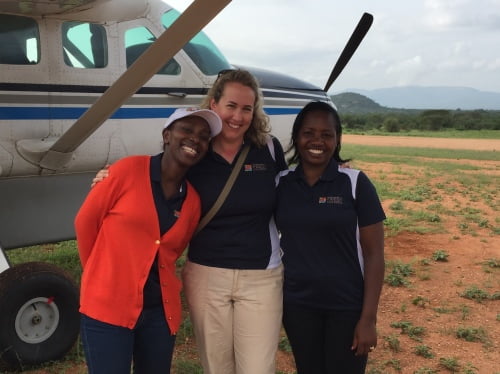 This is not to say that love doesn't have boundaries.
This is not to say that love doesn't have boundaries.
This is not to say that love doesn't have cost.
And most certainly it doesn't mean that love doesn't hurt.
But we love anyway.
We love those who see the world in hues different from us.
We love those whose actions we deem disgraceful.
We love those whose belief systems clash against our values.
We just love.
Why? Because it is how Christ shines through us.
And though we feel vulnerable and though we may feel crazy (I mean, who really loves their enemies?), we just love.
I've been challenged by the words of Brene Brown recently who writes in her book, Daring Greatly: “Vulnerability is the birthplace of love . . . If we want greater clarity in our purpose or deeper and more meaningful spiritual lives, vulnerability is the path.”
Vulnerability is the open door in which love has the ability to walk through.
And in vulnerability, we walk with others just as we are, even if loving is difficult for us.
We walk with others with an open heart, ready to receive whatever gifts come our way.
We walk with others not taking ourselves too seriously, remembering the One is in control most of all.
Not to sound overly clique but my word for this week is love is the only way. If you want to know the way forward in your life, start here. 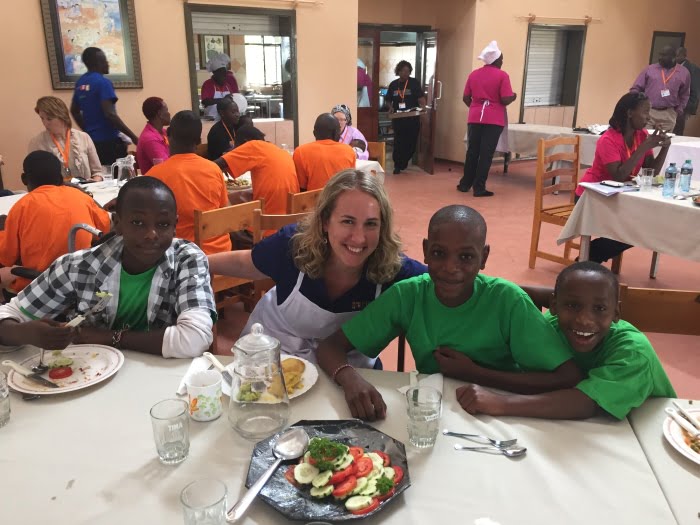
Mary is 36 weeks pregnant, and baby Jesus is due any day.
How do we learn to wait for a baby savior?
Waiting for Christmas is about waiting for a baby to be born, and as any mom will tell you, that kind of waiting is hard work. We get impatient. We get distracted. We take baby waiting as primarily an excuse to eat huge quantities of butter, chocolate, and combinations of the two. But babies change everything, and learning to wait with hopeful longing for God’s new life to burst into the world is at the heart of the Christian faith.
But not everyone who waits for babies waits 40-week gestational periods. There are some parents who must endure rounds and rounds of infertility tests and treatments to even have the possibility hearing that a baby is officially on the way. There are some parents who wait by wading through the rigors of adoption paperwork and court dates. There are some parents who wait for babies who doctors have said have little chance of survival out of utero. There are some co-waiters: aunts and uncles, grandparents, and siblings who come alongside those who wait for babies, both when there is a due date and also when there is not.
What can all of these experiences of waiting teach us about waiting for baby Jesus?
 We (Sarah and Elizabeth) became friends as roommates at Duke Divinity School. We later were both ordained as ministers within the Baptist church. Several years after seminary, I (Sarah) birthed two girls back-to-back and wrote a theological reflection about the experience in a book called, Creating with God. I (Elizabeth) am still waiting to become an official mother, and have written a book (forthcoming) about infertility. How could we as pastors and friends hold our radically different experiences of waiting in the same conversation? This writing project is our answer.
We (Sarah and Elizabeth) became friends as roommates at Duke Divinity School. We later were both ordained as ministers within the Baptist church. Several years after seminary, I (Sarah) birthed two girls back-to-back and wrote a theological reflection about the experience in a book called, Creating with God. I (Elizabeth) am still waiting to become an official mother, and have written a book (forthcoming) about infertility. How could we as pastors and friends hold our radically different experiences of waiting in the same conversation? This writing project is our answer.
This Advent season, we invite you to learn to wait for a baby Savior by waiting with us.
We have asked 4 people with radically different experiences of waiting for babies from even us to write one meditation for each of the four weeks of Advent: Joe, Susan, Beth, and Dayna. We hope that over the course of Advent you get to know each of us better and enter into our stories in a deeper way. We’ve also asked guest writers to join their voices to our project too: Joy, Chris, Jonathan, Jennifer, Kevin, Ed and MaryAnn. They’ve got some fabulous things to say too!
Join us in this conversation of study and preparation this Advent. If you would like a PDF of the project emailed to you, leave your email in the comments or sent a message in the "Contact" section of the blog and we'll be glad to send you the daily devotions.
With anticipation,
Sarah and Elizabeth
If you want to read some posts- check out these favorite ones from some of our writers posted in Advent 2013:
“Discovering Joy” Dayna Olson-Getty (a grieving mom’s story about finding peace)
“Discovering Joy” Elizabeth Hagan (a grieving mom to be)
“Discovering Joy” Susan Smartt Cook (a midwife’s perspective on waiting)
“Love That Groans” Beth Dotson (a grandmother who has waited with others)
“Love That Groans” Joy Bennett (a grieving mother who lost a child)
“Waiting with Hope” Jonathan Wilson-Hartgrove (an adoptive dad)
“Waiting with Hope” Sarah Jobe (a mom of 2 young girls)
“Therefore, since through God’s mercy we have this ministry, we do not lose heart.” II Corinthians 4:1
I have been in labor for almost five years.
There have been ultrasounds.
There has been blood work.
There has been pain: both physical and emotional.
I feel called to motherhood. It’s as strong as the calling I felt to enter the pastorate ten years ago. It’s as strong as the calling that I felt to marry over six years ago. But, I am still a childless mother. My bio below lists no children in our immediate family.
When I first began the journey toward motherhood, I was naïve.
After being married a year, I thought we’d start trying to have kids and then nine months later pop out a beautiful baby. I saw so many of my friends become mothers so easily. My mind and body felt strong. I saw no groaning up ahead. Why would childbirth not happen easily for me?
I had no idea the process of waiting for a baby can extend Advent after Advent, year after year.
I had no idea that labor pains sometimes can feel like the awkwardness of attending a party and being asked by a stranger “Why don’t you have children?” It’s finding your way to a polite response, though what you really want to say is “bug off.”
I had no idea that labor pains can feel like a dear friend telling you she’s pregnant with her third. It’s finding a way to say with a smile and a hug, “Congratulations!” You are happy for her, but . . .
I had no idea that I’d have to invite doctors and lawyers and friends into the process—a process that should have been all about love between my husband and me but instead became a process that included contracts, test tubes, and diagrams of the fertilization process between an egg and a sperm.
Through this painful waiting, I’ve asked God a few questions:
Where are you God when what seemed so sure fell through again?
Where are you God when I had to preach about a teenaged girl having a baby again?
Where are you when my college girlfriends gather to talk about their babies, and I have nothing to offer again?
Throughout this journey of motherhood I’ve always had a choice.
I’ve had a choice to believe that God has clothed me in the scarlet letter of infertility (and God hasn’t).
I’ve had a choice to believe that this wait is punishment for some un-confessed wrongdoing (I don’t believe it is).
I’ve had a choice to believe that I will never welcome children into our family (I still believe we will).
At this juncture of the journey I choose to believe that the desires of my heart will come to fulfillment, somehow, someway. As I continue to wait, I’ve been given the opportunity to experience God’s love at a deeper level than I ever could have imagined. Friends blessed me with deep expressions of kindness that have healed parts of me that I didn’t know were so broken. My husband and I have leaped into the certainty of “No matter what, we are going to get through this together.” And my faith has come to the other side of knowing for sure that even as this season of waiting labors on, my waiting is not in vain. God’s kingdom is coming though it is not already here.
Like Paul told the believers in Corinth, “we have this great ministry, we don’t lose heart,” God has reminded me of this time and time again. And it has been love that has carried me through this labor—love of what my heart has seen, though my eyes have not. In God’s kingdom, we groan together and wait.
Let us pray:

God, Advent can be such a hard time for those of us who are in the middle of waiting for what is to come. Help us to find your love for us even in the midst of the pains of labor that endure for the night. We pray together for your light to come. Amen.
Elizabeth is an ordained minister in the Baptist tradition, a freelance writer and a social media consultant who divides her time between Arlington, VA and Oklahoma City, OK with her husband Kevin. She blogs regularly at “Preacher on the Plaza” (this site). This Advent Elizabeth is hoping for the gift of being present in the moment.
We (Sarah and Elizabeth) became friends as roommates at Duke Divinity School. We later were both ordained as ministers within the Baptist church. Several years after seminary, I (Sarah) birthed two girls back-to-back and wrote a theological reflection about the experience in a book called, Creating with God. I (Elizabeth) am still waiting to become an official mother, and have written a book (forthcoming) about infertility. How could we as pastors and friends hold our radically different experiences of waiting in the same conversation? This writing project is our answer.







 By this I don't mean we all go out and quit our day jobs tomorrow (the bills do have to be paid), but we begin by making small choices every week in the direction of what we love. Maybe for you it's a . . .
By this I don't mean we all go out and quit our day jobs tomorrow (the bills do have to be paid), but we begin by making small choices every week in the direction of what we love. Maybe for you it's a . . . And such seems to be the message of Micah chapter 5. The prophet Micah opens the chapter he says this hopeful word about the nation of Judah’s restoration: “But you, O Bethlehem . . . who are the one of the little clans of Judah, from you shall come forth from me one who is to rule Israel.”
And such seems to be the message of Micah chapter 5. The prophet Micah opens the chapter he says this hopeful word about the nation of Judah’s restoration: “But you, O Bethlehem . . . who are the one of the little clans of Judah, from you shall come forth from me one who is to rule Israel.” they both knew one thing: God was with them. And in Mary’s case quite literally.
they both knew one thing: God was with them. And in Mary’s case quite literally. This weekend, my husband and I were a part of a mission in Honduras. As we celebrated Christmas with a group of boys at orphanage each boy received a Christmas present. It’s not an unusual tradition for it now happens every year, but for a couple of the two youngest boys new to the center, it was completely new.
This weekend, my husband and I were a part of a mission in Honduras. As we celebrated Christmas with a group of boys at orphanage each boy received a Christmas present. It’s not an unusual tradition for it now happens every year, but for a couple of the two youngest boys new to the center, it was completely new.
 Surrender—it’s a word that’s defined by Merriam-Webster’s dictionary as verb that means to give control or use of (something) to someone else.
Surrender—it’s a word that’s defined by Merriam-Webster’s dictionary as verb that means to give control or use of (something) to someone else. It begins with this visual: “I bow my knees before the Father.”
It begins with this visual: “I bow my knees before the Father.” If you are unfamiliar with Corrie’s story—she’s a woman from Holland who reached young adulthood during the Second World War. Corrie, along with her father and sister Bestie hid Jews in their home to keep them from arrest and death at the hands of the Nazis. They did so out of a strong sense of a faith calling.
If you are unfamiliar with Corrie’s story—she’s a woman from Holland who reached young adulthood during the Second World War. Corrie, along with her father and sister Bestie hid Jews in their home to keep them from arrest and death at the hands of the Nazis. They did so out of a strong sense of a faith calling. And, I’ll tell you that when God led your founders to birth a congregation called Antioch Christian Church many years ago that they would have never imagined the ministry of love that God would be calling it to in just a time as this in 2015—but Jesus did.
And, I’ll tell you that when God led your founders to birth a congregation called Antioch Christian Church many years ago that they would have never imagined the ministry of love that God would be calling it to in just a time as this in 2015—but Jesus did. It was a big day yesterday. A BIG day. A day so many of us will remember where we were when we heard the news.
It was a big day yesterday. A BIG day. A day so many of us will remember where we were when we heard the news. In my tradition, ordination is a function of the local church. During a special service the pastor-to-be is called out, charged with words of exhortation and endorsed by a congregation. On the day of the event, the candidate comes forward (usually at the end of the worship service), kneels and the entire congregation is invited forward, one by one to place their hands on the candidate’s head. Each congregation member speaks a word of blessing toward the candidate.
In my tradition, ordination is a function of the local church. During a special service the pastor-to-be is called out, charged with words of exhortation and endorsed by a congregation. On the day of the event, the candidate comes forward (usually at the end of the worship service), kneels and the entire congregation is invited forward, one by one to place their hands on the candidate’s head. Each congregation member speaks a word of blessing toward the candidate. To the interviewer, Angelou then became emotional and leaned over for a moment to make sure she got the point. “I want you to really hear this,” Maya said.
To the interviewer, Angelou then became emotional and leaned over for a moment to make sure she got the point. “I want you to really hear this,” Maya said. These weeks in Tanzania and Kenya, my eyes and ears have been overwhelmed by many things:
These weeks in Tanzania and Kenya, my eyes and ears have been overwhelmed by many things: This is not to say that love doesn't have boundaries.
This is not to say that love doesn't have boundaries.